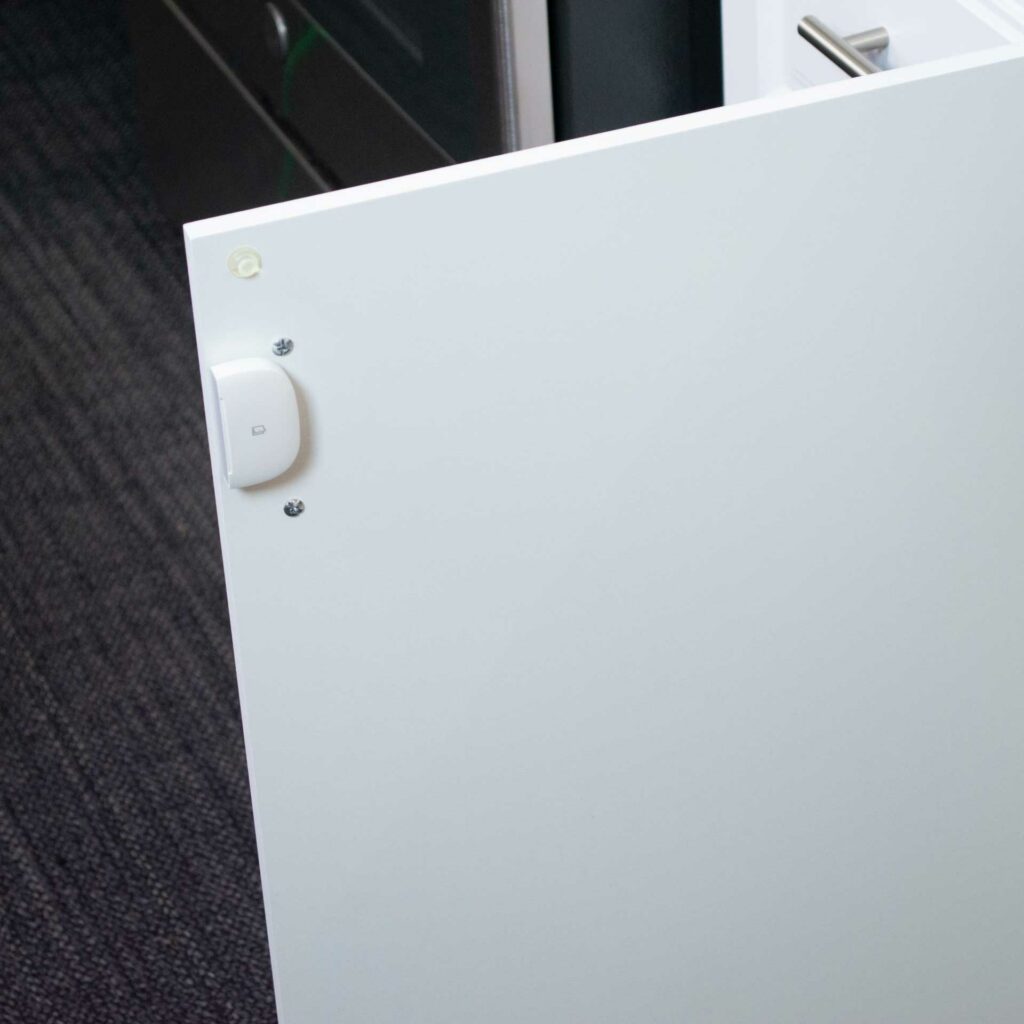
Sensors and Remote Support
Accountability is an important part of setting and meeting goals. Sensor technology can provide important information to help someone stay accountable to their goals. Sensor technology can provide valuable information about someone’s success with goals related to: healthy decision making, cleaning regularly, cooking habits, personal hygiene, medication adherence, and more. For example, a sensor that detects humidity level can help indicate the frequency at which someone has showered; a sensor on a cabinet can indicate how often cleaning supplies are accessed; using a smart watch, exercise habits can be shared. With these data, a support person can prompt or remind the individual to stay on task with their goals when they fall behind.
As discussed in the introduction, reduced availability of direct support professionals is one reason why technology is an important tool when considering how to best support people with developmental disabilities. Remote Support can support many people at once, freeing up Direct Support Professionals to provide in-person care to people when they most need the physical presence of someone else.
Remote Support uses technology, including sensor technology, to support someone according to the goals listed in their Individual Service Plan (ISP). The technologies and sensors used, therefore, are different for each person. By using sensor technology, a support person does not need to actively watch the status of those sensors all the time. Instead, during the hours of remote support, a remote support worker can be notified only at times when certain conditions are met. Often these might be “if this, then that” scenarios. This way someone is only prompted when necessary and may not be prompted daily.